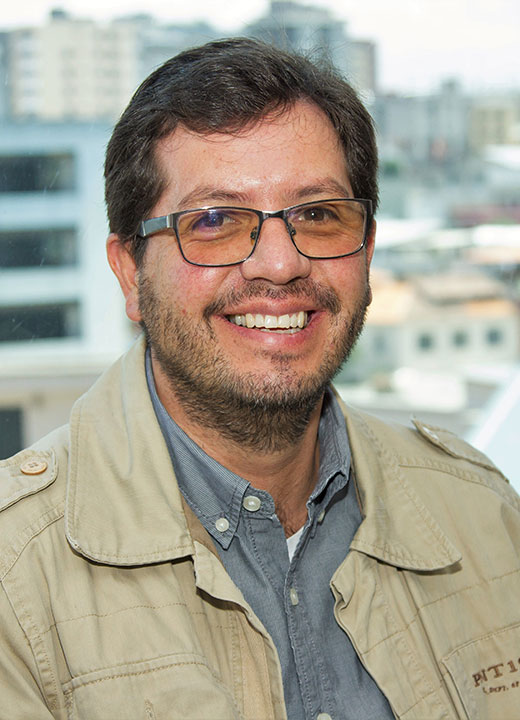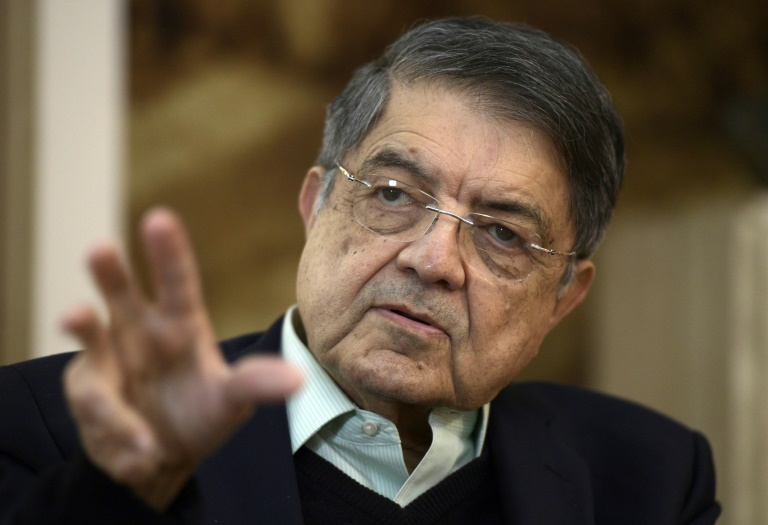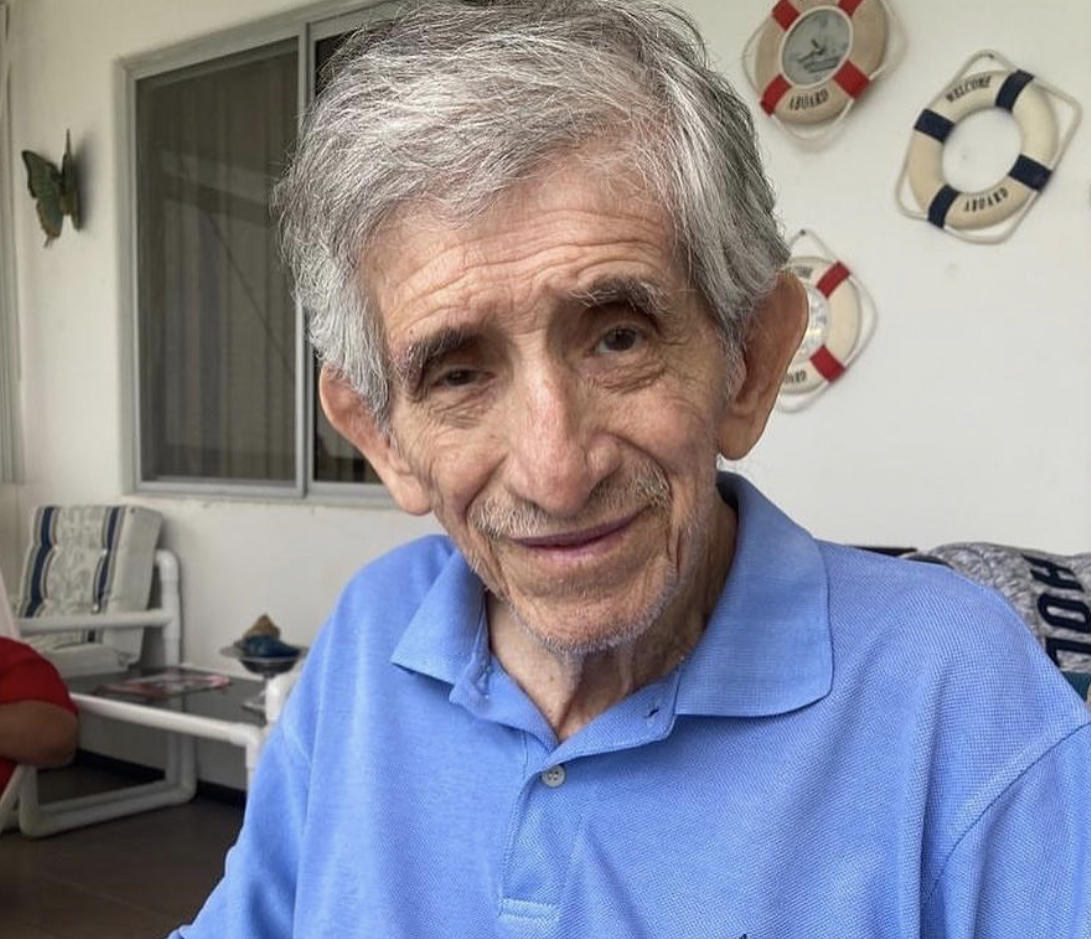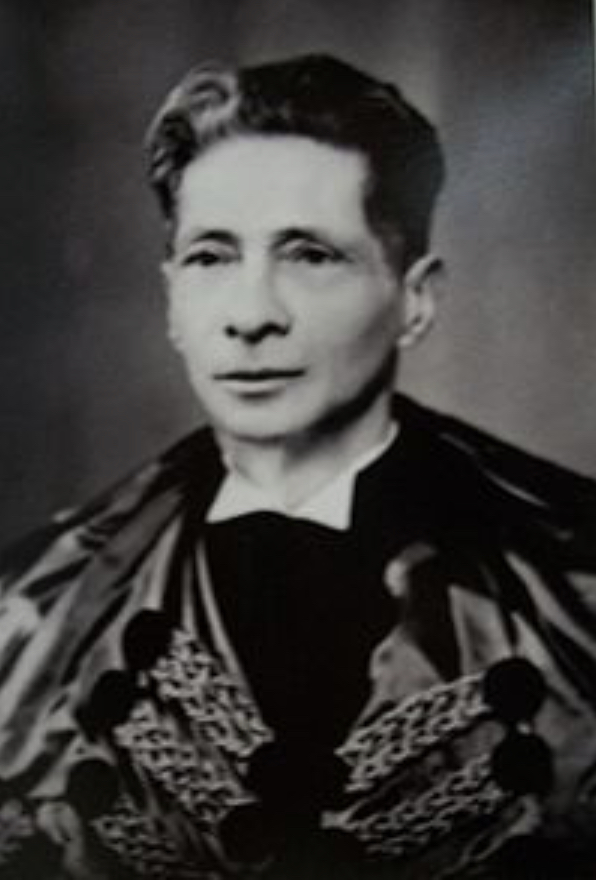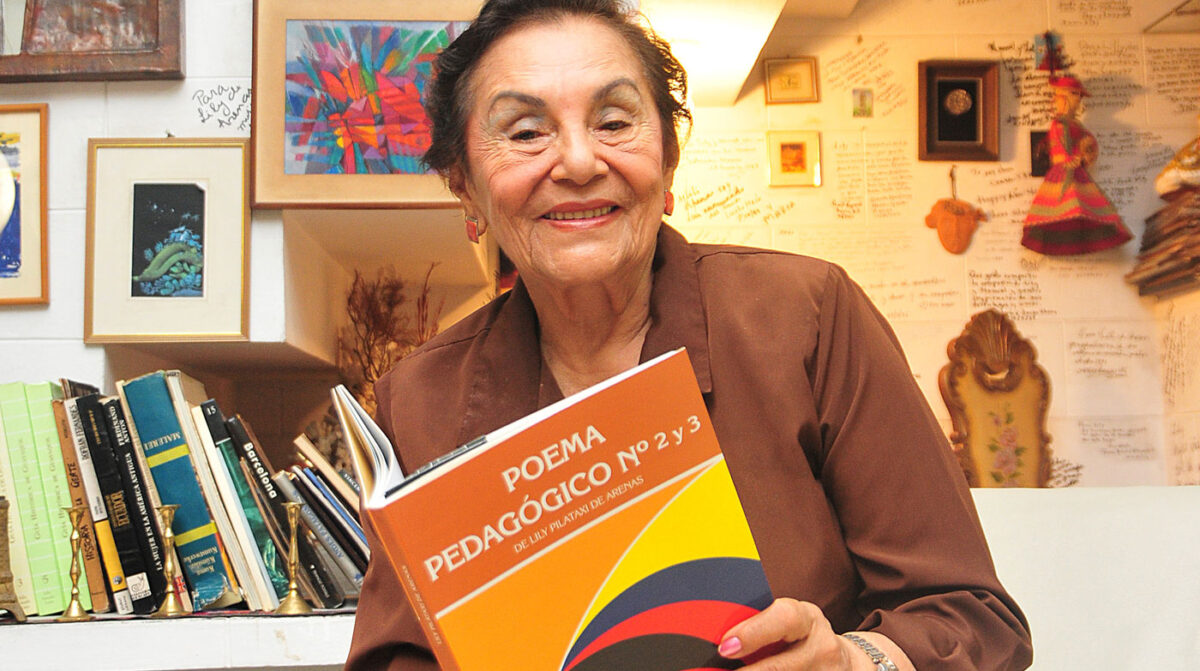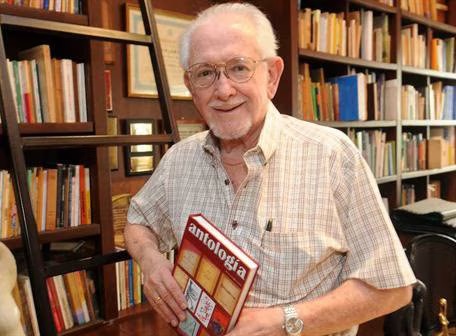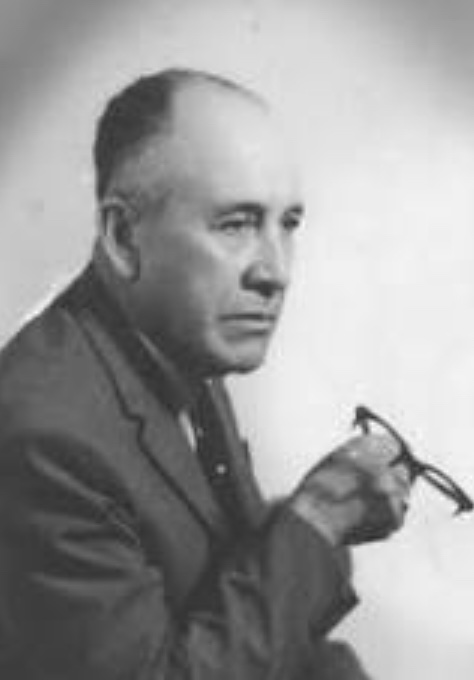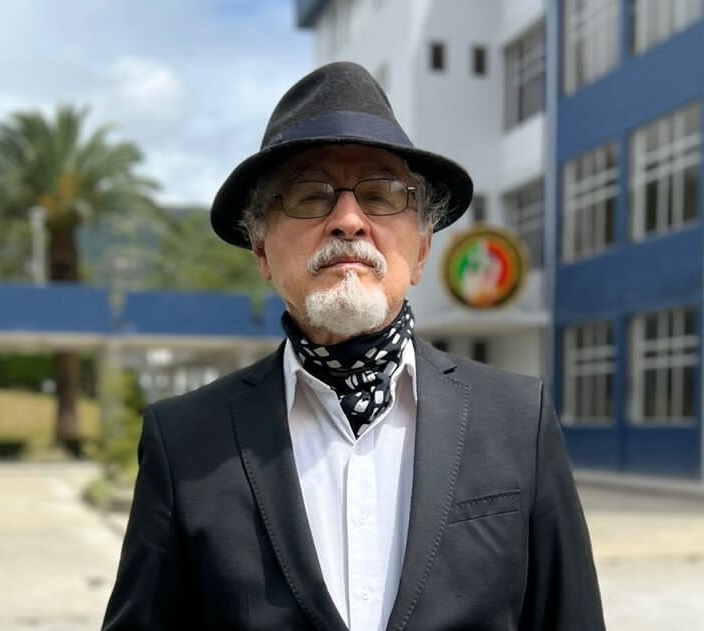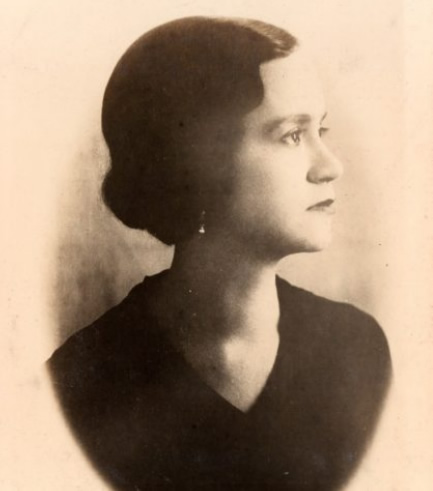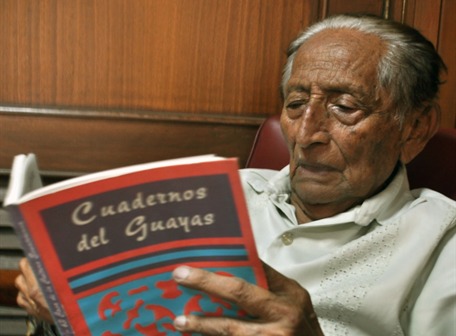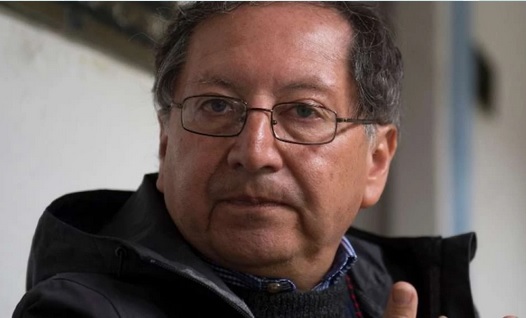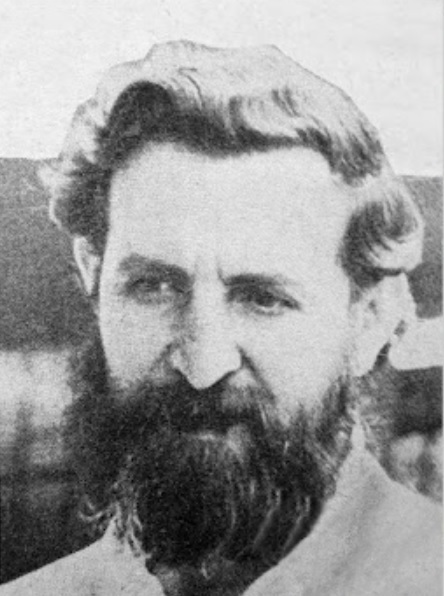Pablo Escandón Montenegro (May 30, 1974) is an Ecuadorian fiction writer and social communicator with a PhD in Communication and Contemporary Information from the University of Santiago de Compostela, Spain. His research focuses on topics such as heritage, museums, memory recovery, and digital literature. He has served as a professor for both undergraduate and postgraduate programs at various universities in Ecuador, and is the director of Arsquitensis. Currently, he works as a full-time professor in the Communication area at Simón Bolívar Andean University in Ecuador.
Continue reading “Pablo Escandón Montenegro”Category: 20th Century Writers
Sergio Ramírez Mercado
Sergio Ramírez Mercado (August 5, 1942) is a prominent Nicaraguan author and a recipient of the prestigious Cervantes Prize. In February of 2023, he accepted an offer of Ecuadorian citizenship from President Guillermo Lasso after being exiled from Nicaragua in 2021 and subsequently stripped of his nationality in 2023, along with 93 other individuals, by the government of Daniel Ortega, who branded them as traitors. He was a key figure in 1979 revolution, served in the leftist Government Junta of National Reconstruction and as vice president of the country 1985–1990 under the presidency of Daniel Ortega. He is currently residing in Spain, where he also holds citizenship, and had previously been granted citizenship by Colombia before being offered citizenship by Ecuador. Ramírez is widely recognized as Nicaragua’s “best-known living writer,” having authored numerous novels, short story collections, and works of non-fiction. Some of his work has been translated into English.
Continue reading “Sergio Ramírez Mercado”Luis Delgadillo
Luis Delgadillo Avilés (Guayaquil, 1942 – September 13, 2022) was an Ecuadorian poet and journalist. He was part of a group of poets dubbed, “Generación Huracanada” [Hurricane Generation]. In 1971, he won the third national poetry prize. His poetry books include: “El rayo que ilumina” (1971), “Poemas de la marcha” (1977), and “Carta para un hijo y otros poemas” (1997). His non-fiction books include: “Leonardo Escobar Bravo, El ministro de los campesinos” (2006) and “La pepa de oro y el montubio” (2007), which focused on themes of the peasant class. He was a member of the literary section of the House of Ecuadorian Culture in Guayas.
Continue reading “Luis Delgadillo”De Plácido e Silva
Oscar Joseph de Plácido e Silva, known as De Plácido e Silva (Marechal Deodoro, Brazil, June 18, 1892 – Curitiba, Brazil, January 16, 1963) was a Brazilian jurist, writer, editor, translator, publisher, teacher, and businessman. In 1939, he founded and directed a publishing house, Editora Guaíra, headquartered in Curitiba, Brazil. In 1940, he created the publishing house’s Estante Americana collection which was the first to feature Hispanic American novels by neighboring countries. The famous Brazilian novelist and translator, Jorge Amado, was asked for title suggestions and acted as a sort of unofficial director of the collection. Due to its powerful social critique, Amado recommended the inclusion of “Huasipungo,” a 1934 novel by Ecuadorian author Jorge Icaza. De Plácido e Silva translated and edited “Huasipungo” into Portuguese and wrote the preface for the book, which was dated June 1941. It was the book’s first-ever Portuguese translation; since then, two additional Portuguese translations have been made. It is worth noting that the collection’s most successful works were “Doña Bárbara,” by Venezuelan author Rómulo Gallegos (translated by Jorge Amado in 1940) and “Huasipungo” by Ecuadorian author Jorge Icaza (translated by De Plácido e Silva in 1941). A school in Pinhais, Brazil, “Colégio Estadual Oscar Joseph D’Plácido e Silva,” established in the year 2000, was named in his honor.
Continue reading “De Plácido e Silva”Lily Pilataxi de Arenas
Lily Pilataxi de Arenas (Guayaquil, 1930) is an Ecuadorian author of children’s literature, poet, writer, journalist, diplomat and educator. As a feminist and advocate of women’s rights she authored “La Mujer y sus Derechos” [Women and their Rights] (1990). She has taught in Ecuador and Germany, and most recently served as rector of the Educational Unit Steiner (Unidad Educativa Steiner) in Guayaquil. Her teaching experiences in Germany (from 1963 to 1978) are chronicled in “Poema pedagógico No 2 y 3” [Pedagogical Poem Nos. 2 and 3]. Perhaps her most popular children’s story is “Doña cucaracha y la bolita de nieve” [Don︣a Cucaracha and the Snowball] (2010) which was translated into English, Geman and French. She has received numerous honors both inside and outside of Ecuador. She was awarded and designated an honorary member of The International Society of Poets, Writers, and Artists (SIPEA). As a journalist, she wrote an opinion column for El Universo newspaper for 30 years, and was also an opinion columnist for El Telégrafo. She has given lectures in the United States, Europe and Africa.
Continue reading “Lily Pilataxi de Arenas”Francisco Pérez Febres-Cordero
Francisco Pérez Febres-Cordero (Guayaquil, July 18, 1934 – Ibidem, August 31, 2010) was an Ecuadorian poet and journalist whose distinguished career at El Universo newspaper lasted four decades (1958-1998). Among his many accomplishments at El Universo was the creation of the Ismael Pérez Pazmiño Poetry Contest in 1959, which is regarded as one of the most prestigious poetry awards in Ecuador. He authored several poetry books, beginning with “Polvo de estrellas” [Star Dust] in 1951. His “Obras completas” [Complete Works] was published posthumously in 2020. From 1992 to 1998 he was Vice-director and Chairman of the Board of El Universo. In 1998, the year he retired from El Universo, he and one of his sons launched a bookstore named El Librero inside the Ríocentro Ceibos Mall, which, in 2008, they sold to the Librimundi group. In 2012, a bust of him was erected on “Avenida del Periodista” (Avenue of the Journalist) in Guayaquil.
Continue reading “Francisco Pérez Febres-Cordero”Justino Cornejo
Justino Cornejo Vizcaíno (Puebloviejo, Los Ríos, Ecuador, August 9, 1904 – Guayaquil, July 24, 1988) was a writer, educator, linguist, folklorist and scholar of Ecuadorian culture. He was a socialist and several times jailed at protests or by orders of Ecuadorian presidents. He published many articles in newspapers such as El Mercurio, El Día, Expreso, and El Telégrafo. He belonged to 22 foreign and 12 national institutions. In addition, he received twelve decorations, including that of Commander of the Order of Prince Henry (Ordem do Infante Dom Henrique) conferred by the President of Portugal. Some of his notable books include: “Diccionario del hampa guayaquileña” [Guayaquilean Underworld Dictionary] (1953), “Lengua i folclore” [Language and Folklore] (1963), and “El Quichua en el Castellano del Ecuador” [Quichua in Ecuador’s Spanish] (1967), to name a few. His complete works were published in 1989. Since then, previously unpublished works have been released, such as “Celda carcelaria” [Jail Cell] (2002), in which Cornejo writes about his experiences during his 90-day imprisonment in 1953 on the orders of Ecuadorian President José María Velasco Ibarra, who accused him of attempting to destabilize his government as an editorialist for La Nación newspaper. From 1946 until his retirement in 1968 he was a professor of Spanish and literature at the University of Guayaquil. In 1950, he became a member of Ecuador’s Academy of Language.
Continue reading “Justino Cornejo”Carlos Carrión
Carlos Alfonso Carrión Figueroa (Malacatos, Loja, January 25, 1944) is an Ecuadorian novelist and short story writer. He has won several prestigious literary awards, including the José de la Cuadra Award for his 1982 short story collection “El más hermoso animal nocturno” [The Most Beautiful Nocturnal Animal], the Joaquín Gallegos Lara Award twice, first for his 1995 short story book “El corazón es un animal en celo” [The Heart is an Animal in Heat] and later for his 2005 novel “¿Quién me ayuda a matar a mi mujer?” [Who’ll Help Me Kill My Wife?], which also earned him the “Lira y la Pluma” Award. Additionally, his work has been featured in various anthologies. In 2013, he won the Miguel Riofrío Award for his novel “La mantis religiosa” [The Praying Mantis]. Recently, in 2022, Carrión Figueroa was honored with the Eugenio Espejo National Prize, the highest literary recognition in Ecuador.
Continue reading “Carlos Carrión”Matilde Hidalgo de Prócel
Matilde Hidalgo de Prócel (Loja, September 29, 1889 – Guayaquil, February 20, 1974) was an Ecuadorian physician, poet, and activist who was a pioneer for women’s rights in Ecuador and Latin America, becoming the first woman to vote in the country and the continent in 1924. As a doctor, she also became the first woman to earn a Doctorate in Medicine in Ecuador, using her platform to fight for women’s rights and improve healthcare for women and children. She was an active member of feminist organizations and expressed her views through poetry. Her legacy as one of the most important women in Ecuadorian history endures, inspiring future generations to fight for gender equality. Matilde Hidalgo was honored by Google on November 21, 2019, with a Google Doodle commemorating what would have been her 130th birthday.
Continue reading “Matilde Hidalgo de Prócel”Bertha Cando de Izurieta
Bertha Cando de Izurieta, also known as Bertha de Izurieta, was an exceptional Ecuadorian writer and journalist hailing from Cotopaxi. She broke barriers as the founding director of Cotopaxi Province’s very first newspaper, El Cotopaxi, which graced readers’ hands from July 24, 1959, until February 22, 1960. In 1962, she became Ecuador’s first-ever female President of a Municipal Council in the town of Saquisilí located in the Cotopaxi Province. Her husband, Gustavo Izurieta Obando, was the deputy director and proprietor of the publishing house, “Editorial Minerva.” Their son, Gustavo Izurieta, also took the reins as director for a few months. In 1954, Bertha’s novel, “Juventud inmolada” [Immolated Youth], was released under the banner of their publishing house.
Continue reading “Bertha Cando de Izurieta”Cristóbal Garcés Larrea
Cristóbal Garcés Larrea (Guayaquil, April 20, 1924 – May 2017) was an Ecuadorian poet, editor, and literary critic. He was the editor-in-chief of Cuadernos del Guayas, the official magazine of the Guayas chapter of the House of Ecuadorian Culture, which was created by Carlos Zevallos Menéndez and whose prior editors-in-chief were Adalberto Ortiz and Francisco Pérez Febres Cordero (albeit for short periods). In 1944, he and Galo René Pérez, Jorge Enrique Adoum and Enrique Noboa Elizaga published the literary magazine Madrugada. In 1970, he released a book series that included stories by then-contemporary writers from certain Latin American countries or regions (which he compiled and edited), including: “Narradores Centroamericanos Contemporáneos,” “Narradores Cubanos Contemporáneos,” “Narradores Colombianos Contemporáneos,” and “Narradores Brasileños Contemporáneos.” He published several of his poems in magazines in Ecuador but a collection of his poems has never been published as a book. He worked for many years as a professor.
Continue reading “Cristóbal Garcés Larrea”Diego Velasco Andrade
Diego Velasco Andrade (Quito, 1958) is an Ecuadorian poet, fiction writer, editor, professional architect, and university professor. In 1982, he joined Miguel Donoso Pareja’s Literary Workshop at the House of Ecuadorian Culture. He has published a number of poetry collections and fiction books. Since the 1980s, he has been a professor of Semiotics and Design at the Central University of Ecuador. His 2002 novel “¿El poeta ha muerto?” [Is the Poet Dead?] was adapted for the stage by the Ecuadorian group Ojo de Agua and staged in Ecuador, Spain and Belgium. In the 1980’s he was a founding member of a literary group called El Matapiojo. For many years, starting in 2005, he directed the literary workshops of the House of Ecuadorian Culture. His works have appeared in several Ecuadorian literary anthologies.
Continue reading “Diego Velasco Andrade”Michael H. Handelsman
Michael H. Handelsman (Weehawken, New Jersey, United States, May 11, 1948) is an American university professor, scholar, literary critic, and writer. He is professor emeritus of Latin American literature at the University of Tennessee, Knoxville, where he has been teaching since 1976. He has directed the university’s Latin American Studies and Global Studies programs. His principal area of specialization is Ecuadorian literature and culture. Some of his books include: “Amazonas y artistas: Un estudio de la prosa de la mujer Ecuatoriana” (1978), “Lo afro y la plurinacionalidad: el caso ecuatoriano visto desde su literatura” (1999), and “Leyendo la globalización desde la mitad del mundo: identidad y resistencias en el Ecuador” (2005) which received the Isabel Tobar Guarderas award in Quito and the A.B. Thomas award in the U.S. He’s also written extensively on Benjamín Carrión, including: “En torno al verdadero Benjamín Carrión” (1989), “El ideario de Benjamín Carrión” (1992) and “Benjamín Carrión: el pensamiento fundamental” (2007). He’s been a visiting professor at the University of Kentucky, the Catholic University of Santiago de Guayaquil (UCSG), and the Simon Bolivar Andean University of Quito. Since November 12, 2012, he’s been a foreign corresponding member of Ecuador’s National Academy of Language.
Continue reading “Michael H. Handelsman”Francisco Delcasty
Francisco Delcasty was a revolutionary Ecuadorian poet and member of the Communist Party of Ecuador. He authored his most famous poem a day after the National Army massacred over a thousand striking workers during the Guayaquil general strike of 1922, which starts with the line “El hambre va en desfile” [Hunger is marching]. In 1970, the House of Ecuadorian Culture published a collection of his poems entitled, “Alpha y omega: apoesía.” The renowned Guayaquilean poet Sergio Román Armendáriz dedicated a poem to him entitled, “Puerto Rico en el Llanto” in the book “Club 7” (1954). Román was friends with Delcasty during the 1950’s and said in an interview that he believed Delcasty was likely a Spaniard (born with the last name Castillo) who was considered Ecuadorian because of his close ties to Ecuador and its politics.
Continue reading “Francisco Delcasty”Rafael Larrea Insuasti
Rafael Larrea Insuasti (Quito, 1942 – Ibidem, April 22, 1995) was an Ecuadorian poet, journalist, political essayist, editor, songwriter, music composer, and social activist. He is known as a social and revolutionary poet who was a member of the Central Committee of the Marxist-Leninist Communist Party of Ecuador (PCMLE). For over 20 years, he was the editor-in-chief of the Party’s newspaper, En Marcha, and created the PCMLE’s first propaganda manual. In the 1960s, along with other young leftist poets, he founded the Tzántico group. His poetry books include “Levantapolvos” (1969), “Nuestra es la vida” (1978), “Campanas de bronce” (1983), “Bajo el sombrero del poeta” (1988), “Nosotros, la luna, los caballos” (1995), and “La casa de los siete patios” (1996, published posthumously). In addition to political activity, Larrea graduated as a journalist from the School of Information Sciences of the Central University of Ecuador and was a language teacher. His political, cultural, and literary writings were collected in a book entitled, “Escritos polticos” (2007), published by the PCMLE Commission for Art and Culture. He also penned a number of popular songs, such as “Capishca de la Libertad,” “La Negra Clara Inés,” and others. A public basic education school in Duran, Ecuador, bears his name.
Continue reading “Rafael Larrea Insuasti”
